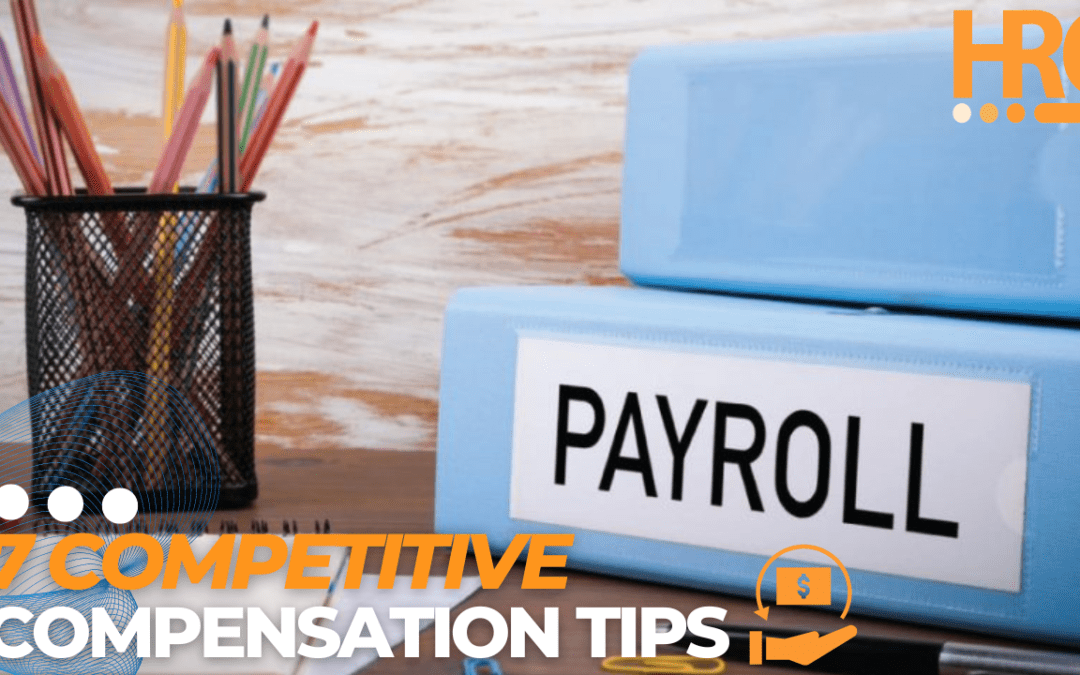Today’s job market is extremely competitive, but not just for those who are looking for a job. Employers are also facing competition to recruit the best employees for their companies. In this competitive labor market, job seekers are not settling for the standard compensation rates and benefits of the past. Job seekers know what their experience is worth and are willing to walk away from a job opportunity if it does not meet their expectations. This is why it is important for employers to offer competitive compensation not only to recruit but also to retain talented people. Here are 7 tips on putting together a competitive compensation plan for your company.
Want to Learn the Latest People and Business Trends? Click Here to Learn More!
Competitive Compensation Tips
1. Research the Job Market
Knowing the average wage ranges for a particular role can help you determine if you are meeting the expectations of job candidates.
2. Align this wage range to the experience of the candidate
Candidates with higher levels of experience or education will most likely be looking for a higher rate of compensation than those with less experience (ie. above the middle of the wage range). Factoring in experience when determining compensation is especially important when hiring for upper-level positions and advanced skills.
3. Consider a variable pay program that pays on above average performance
To help keep wages in line with average output, consider adding in a variable pay program that pays out for “advanced output”, special projects completed that add to the bottom line, etc.
4. Factor in Benefits
Pay is not the only form of compensation that job seekers are looking for. Benefits, such as health insurance, flex-time, and paid time off can help increase your company’s competitive edge in the job market. Benefits, flexibility, and one-on-one attention can also draw job seekers to small companies who cannot pay as high of a wage as their competitors.
5. Have a Policy on Raises
By compensating employees for the experience they gain while on the job can ensure that your company stays competitive with other businesses in your area. This is typically conducted on an annual basis in line with past year’s performance of the business and the individual.
6. Consider Flexible and Remote Work Environments
Another benefit that many job seekers are looking for is the option for flexible schedules and/or remote work. This benefit option costs the employer nothing in most cases and can be written into the compensation plan for potential new employees or for current employees.
7. Do a “Temperature Check” with your Employees
Getting the insight of your employees and what they genuinely want can help you develop a competitive compensation plan that will appeal to them.
With today’s competitive job market, having a total compensation and benefits plan that meets the needs of the job seeker and your current team is essential. Using these top 7 competitive compensation tips to help build your company’s compensation plan can help you recruit and retain the best talent for your company.
If you’re interested in learning more about developing competitive compensation packages, contact the team at HR Collaboration Group today. We are here to help you in all aspects of human resources management and employee development – with as little or as much help as you need.

